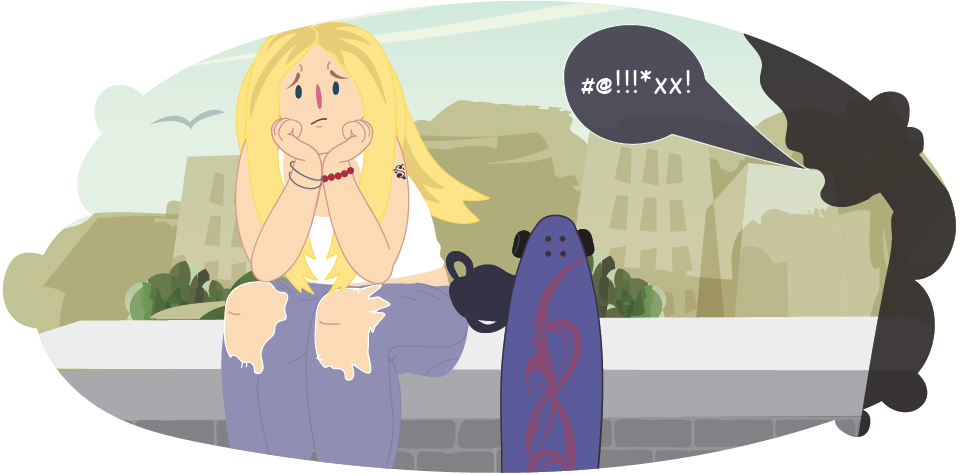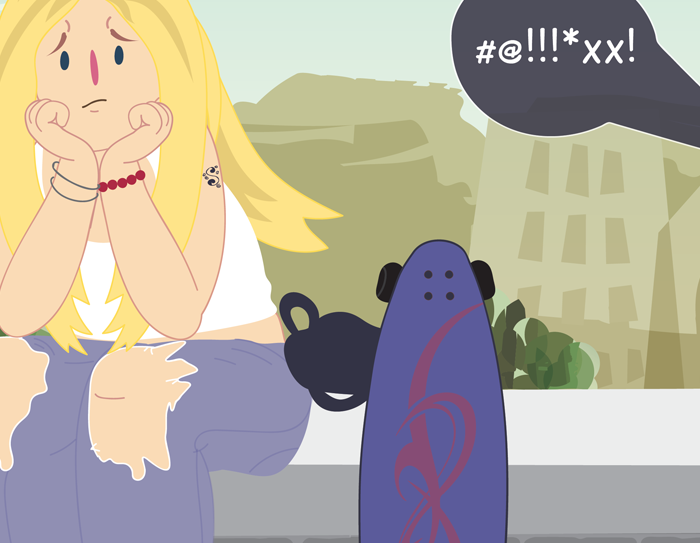Understanding emotional abuse
When an adult is hurting you with their words or actions over and over, it’s not ok and there are people who can help.
Content Warning: this article contains violence and trauma related content that may be triggering or distressing.

What is emotional abuse?
Emotional abuse happens when someone keeps treating you in a way that makes you feel scared, worthless or alone.
It’s sometimes called psychological or verbal abuse.
It’s when someone keeps saying or doing things that are hurtful to you.
It can include constant yelling, criticising, rejecting, isolating and bullying.
Emotional abuse can be just as harmful as physical abuse.
Nothing you say or do makes it ok for someone to emotionally abuse you.
Types of emotional abuse
Here are some examples of emotional abuse:
Calling you names or constantly putting you down
Withholding love, support, praise or attention
Forcing you to do things by scaring you
Driving recklessly in the car to scare you
Constantly criticising, humiliating or blaming you
Having expectations of you that are too high or you cannot reach
Ignoring or pretending you aren’t there
Often swearing, yelling or screaming at you
Threatening to harm you, people you care about or your pets
Making you feel different from other family members
Telling you that you’re worthless, unloved or not good enough
Not letting you be independent, learn new things or make friends
Not allowing you to express your ideas or making fun of what you say
Treating you badly because of things you can’t change (eg. disability, gender, sexuality)
You deserve to be treated with care and respect. No-one has the right to make you feel bad about yourself.
Words hurt
While emotional abuse might not hurt your body, it can be just as harmful and painful to you on the inside.
You may feel:
- Worried, guilty, angry or confused
- Fearful of doing something wrong
- Sad, lonely or like hurting yourself
- Self-conscious or not liking yourself
- That you can’t express your feelings
- Unloved, unwanted or rejected
- Like running away or getting even with someone
- Worthless, hopeless or betrayed
- Unable to trust others or always having to please them
If emotional abuse is happening to you…
It’s important to remember:
There are people you can talk to who can help
Here’s a list of some people you could try talking to. Remember, if at first you don’t get help, keep trying until you find somebody who will help you.
Kids Helpline - 1800 55 1800
An older relative or friend
1800 RESPECT - 1800 737 732
A teacher or school principal
Child Protection
Doctor or nurse
School Counsellor
Youth worker
Check these out too:
Domestic violence at home
Violence or abuse at home isn’t ok. Everybody deserves to feel ...
READ MEWhat is abuse
Abuse takes many forms and there isn’t one single way that ...
READ MEPhysical violence and abuse
Violence is never okay. If you or someone you know is experiencing ...
READ MEHow to ask for help
Sometimes we need help but we're not able to ask for it. ...
READ METalking helps! We’re here for you.
No problem is too big or too small.
We're here 24 hours a day, 7 days a week






